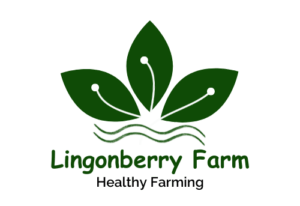Lingonberries are small, bright red berries that are cherished for their unique tart flavor and high nutritional value. They have been used for centuries in traditional cooking, medicine, and preservation, particularly in Northern Europe and parts of North America. Today, lingonberry farms provide a way to cultivate these berries sustainably while delivering fresh, high-quality produce to markets and consumers.
What Is a Lingonberry Farm?
A lingonberry farm is a farm dedicated to growing and harvesting lingonberries. Unlike many other berries, lingonberries thrive in acidic, well-drained soil and prefer cooler climates. They are hardy plants that can survive harsh winters and poor soil conditions, which makes them perfect for northern regions.
Farming lingonberries requires special care. The soil must be acidic, often with added organic matter such as peat moss. Farmers usually plant lingonberries in rows with proper spacing to allow the plants to spread and grow. Mulching helps retain moisture and control weeds, while irrigation ensures the plants receive the water they need to thrive.
The Growth and Harvest Process
Lingonberries are perennial plants, which means they grow back every year. Their low, spreading branches and shallow roots make them easy to manage.
The growth process includes:
- Soil Preparation: Preparing acidic soil is essential. Organic amendments like peat moss or pine needles are often used.
- Planting: Young lingonberry plants are carefully spaced to avoid overcrowding and ensure healthy growth.
- Watering: Lingonberries need regular moisture, but waterlogged soil can harm the roots.
- Weed and Pest Management: Mulching and natural pest control methods are commonly used.
- Harvesting: The berries are usually ready to harvest in late summer or early fall. They can be hand-picked or gently shaken from the branches.
Once harvested, lingonberries can be sold fresh or processed into jams, juices, sauces, and other products.
Health Benefits of Lingonberries
Lingonberries are packed with nutrients, antioxidants, and vitamins that contribute to good health. Some key benefits include:
- Rich in Antioxidants: They help protect the body from harmful free radicals.
- Supports Heart Health: Compounds in lingonberries may improve cholesterol levels and promote cardiovascular health.
- Urinary Tract Health: Similar to cranberries, lingonberries can help prevent urinary infections.
- Anti-Inflammatory: The berries contain compounds that reduce inflammation and support the immune system.
Because of these benefits, lingonberries are highly valued not only in the culinary world but also in natural health products.
Uses of Lingonberries
Lingonberries are versatile in the kitchen. They are commonly made into jams, sauces, and preserves. They can also be added to baked goods, smoothies, salads, and even savory dishes.
Lingonberry farms often create value-added products, such as:
- Lingonberry Jams and Preserves
- Juices and Syrups
- Dried Lingonberries for Snacking
- Culinary Sauces
These products help extend the shelf life of the berries and allow consumers to enjoy lingonberries year-round.
Environmental and Economic Importance
Lingonberry farms are environmentally friendly because the plants require minimal fertilizers and pesticides. They can grow in soils unsuitable for other crops, which helps maintain biodiversity.
Economically, these farms provide jobs, support local businesses, and supply fresh produce to markets. Many small-scale and organic farms also sell directly to consumers, promoting farm-to-table connections and sustainable agriculture practices.
Visiting a Lingonberry Farm
Many lingonberry farms welcome visitors, offering tours, educational experiences, and hands-on berry picking. Farm stores often sell fresh berries and related products, giving visitors the chance to taste and learn about the fruit. Visiting a lingonberry farm can be a fun and educational activity for families, gardeners, and food enthusiasts.
Conclusion
Lingonberry farms are a unique and valuable part of modern agriculture. They provide delicious, nutritious berries while promoting sustainability and supporting local economies. From planting and harvesting to producing jams and juices, lingonberry farming combines traditional knowledge with modern agricultural techniques.
Whether enjoyed fresh, processed, or incorporated into recipes, lingonberries are small fruits with big benefits. Lingonberry farms not only bring these red gems to our tables but also help preserve a healthy and sustainable connection between people and nature.
